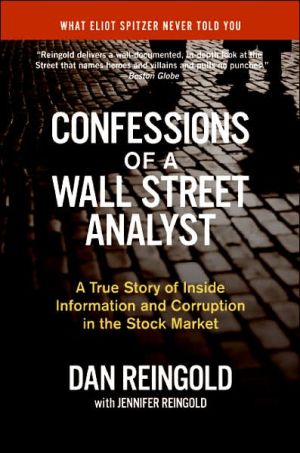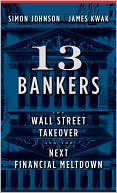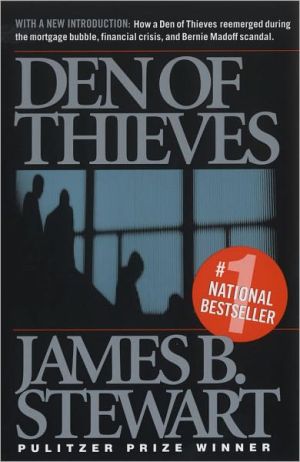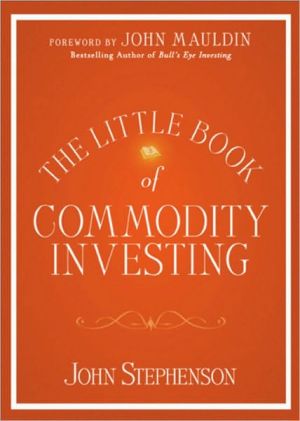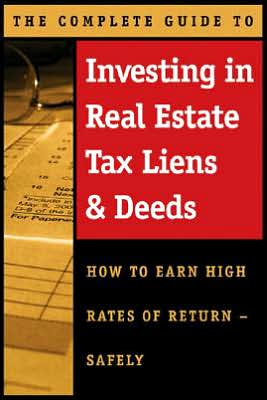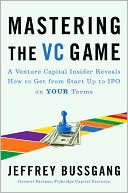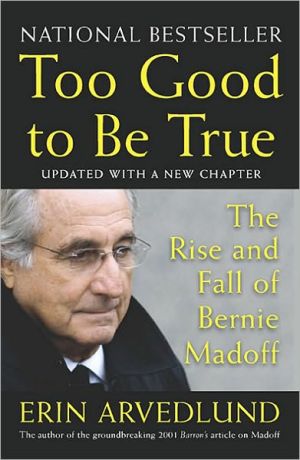Confessions of a Wall Street Analyst: A True Story of Inside Information and Corruption in the Stock Market
Here is the true story of a top Wall Street player's transformation from a straight-arrow believer to a jaded cynic, who reveals how Wall Street's insider game is really played.\ \ Dan Reingold was a top Wall Street analyst for fourteen years and Salomon Smith Barney analyst Jack Grubman's chief competitor in the red-hot sector of telecom. Reingold was part of the "Street" and believed in it.\ But in this action-packed, highly personal memoir written with accomplished Fast Company senior...
Search in google:
Here is the true story of a top Wall Street player's transformation from a straight-arrow believer to a jaded cynic, who reveals how Wall Street's insider game is really played. Dan Reingold was a top Wall Street analyst for fourteen years and Salomon Smith Barney analyst Jack Grubman's chief competitor in the red-hot sector of telecom. Reingold was part of the "Street" and believed in it.But in this action-packed, highly personal memoir written with accomplished Fast Company senior writer Jennifer Reingold the author describes how his enthusiasm gave way to disgust as he learned how deeply corrupted Wall Street and much of corporate America had become during the roaring stock market bubble of the 1990s.Confessions of a Wall Street Analyst provides a front-row seat at one of the most dramatic — and ultimately tragic — periods in financial history. Reingold recounts his introduction to the world of Wall Street leaks and secret deal-making; his experiences with corporate fraud; and Wall Street's alarming penchant for lavish spending and multimillion-dollar pay packages.Reingold spars with arch rival Grubman; fends off intense pressures from Wall Street bankers and corporate CEOs; and is wooed by Morgan Stanley's CEO, John Mack, and CSFB's über-banker Frank Quattrone.Reingold describes instances in which confidential deals are whispered days before their official announcement. He recalls the moment he learns that Bernie Ebbers's WorldCom was massively cooking its books. And he is shocked to have been an unwitting catalyst for a series of sexually explicit e-mails that would rock Wall Street; bring Jack Grubman to his knees; and contribute to the stepping aside of Grubman's boss, Citigroup CEO Sandy Weill.Some of Reingold's stories are outrageous, others hilarious, and many are simply absurd. But, together, they provide a sobering exposé of Wall Street: a jungle of greed and ego, a place brimming with conflicts and inside information, and a business absurdly out of touch with the Main Street it claims to serve.He shows how government investigators, headlines notwithstanding, never got to the heart of the ethical and legal transgressions of the era. And how they completely overlooked Wall Street's pervasive use of inside information, leaving investors — even sophisticated professionals — cheated. The book ends with a series of important policy recommendations to clean up the investing business.In the tradition of Liar's Poker and Den of Thieves, Confessions of a Wall Street Analyst is a no-holds-barred insider's account that will open the eyes of every investor. Publishers Weekly When retired telecommunications analyst Dan Reingold decided to write an account of what he'd seen while working for powerful Wall Street investment banks, he turned to his niece, a journalist at Fast Company and the author of Final Accounting: Ambition, Greed and the Fall of Arthur Anderson, for help. Together, they've created a solid structure for his recollections of life in the trenches, but because he's one of the good guys, Reingold doesn't have much to confess. Beyond detailing every step in his upward career mobility, Reingold does little but gripe about people like his main competitor, Jack Grubman, who spent years flaunting insider connections with executives who would float him advance info on major corporate deals. (Grubman is currently a defendant in several securities fraud cases.) Reingold does suggest that insider influence is so pervasive in the financial market that investors should avoid individual stocks completely, and he has a number of recommendations for industry-wide reform, but in the end, his story is basically that he worked in the same industry as a bunch of bad eggs. While the personal material is never less than engaging, it doesn't fundamentally alter our understanding of the recent market scandals. (Feb.) Copyright 2006 Reed Business Information.
Confessions of a Wall Street Analyst\ A True Story of Inside Information and Corruption in the Stock Market \ \ By Daniel Reingold \ HarperCollins Publishers, Inc.\ Copyright © 2006 Daniel Reingold\ All right reserved. \ ISBN: 0060747692 \ \ \ Chapter One\ The Plunge\ 1989-1991\ \ \ Ed picked me up at my house in a taxi. My home, at the time, was nothing super fancy, but Paula and I had put a lot of sweat into it and were quite proud of it.\ Ed took one look at the house and almost started laughing. "You ought to come to Wall Street and hit the big time," he said.\ \ July 14, 1989\ "This Is the Street Where They Fool People."\ \ That's what I was thinking as I stepped off the early morning express train from Scarsdale and stood on Madison Avenue, blinking nervously in the bright sunlight. As I gazed up at the rows of tall buildings and tried to avoid colliding with the natives, I felt the tiniest sense of relief.\ At least my job was on Wall Street. Madison Avenue, by contrast, was the center of the advertising world, the place where smart and manipulative companies burned loads of cash and creative energy to convince us that we needed to wash our hands with Dial, brush our teeth with Colgate, and wipe our derrieres with Charmin. At least I was going to be an analyst whose job it was to evaluate companies on their merits, not someone whose raison d'etre was to seduce America's soap-opera watchers with meaningless slogans and exaggerated promises.\ My new job in equity research, I believed, had nothing to do with manipulation and everything to do with balanced, rational thinking. I had made the leap to Wall Street in part because of the money, but also because being an analyst seemed like the perfect job for a serious guy like me who liked to reason his way through life. Sure, emotion and hype sneaked into my line of work occasionally, but in the end, the stock market was rational, analytical, cool. Fooling people wasn't part of this equation.\ Or so I thought. In retrospect my naivete sounds charming or -- let's not be charitable -- silly. Of course Wall Street was as much about fooling people as Madison Avenue was, at least if you were one of the corporate executives trying to convince investors -- and analysts -- that your company's shares would shoot to the moon. But my job, I hastened to tell myself, was all about shooting straight. I had been in a sales role before, and I'd never liked it. Now I'd have a chance to focus entirely on the facts.\ I grabbed on to that belief as if it were a life preserver and clutched it as I walked up Madison, then west on Forty-eighth Street and north on Sixth Avenue until I reached the headquarters of Morgan Stanley at Fiftieth and Sixth. I was 36 years old, it was my first day on Wall Street, and I was scared out of my mind.\ Not that I had fallen off the turnip truck or anything. I had moved here from Washington, D.C., where I had been director of business analysis at MCI, the brash upstart that was shaking up the telecommunications business. I had interacted with Wall Street and its analysts and bankers for the past two years, trying to make them see my company as positively as I did. What I loved the most was the intellectual sparring as we debated the future of MCI and the telecom industry. It had been a great gig.\ But this was the big time. I had been recruited by one of the premier investment banks, a place better suited to Brooks Brothers-clad Greenwich bluebloods than a middle-class public school guy from Buffalo, New York. I was going to be one of a select group of some 35 analysts at Morgan Stanley whose job it was to recommend stocks -- and, I had been told, move the financial markets. The prestige and power of my new job filled me with pride. But the responsibility terrified and humbled me. All of a sudden I was in the major leagues, and I'd never even played Class A ball. What was I doing in the middle of this?\ Already, I'd ventured pretty far from my beginnings as the son of a scrap-metal dealer with a high school education. I'd been a political science major and math minor at the State University of New York at Albany, where I'd met my wife-to-be, Paula Zimmer, during a Wiffle ball game on the first day of our second year. She studied art history and then went back to school to become a pediatric-intensive-care nurse. And I'd gone on to become a starry-eyed graduate student of Middle East politics at the University of Chicago and Princeton University, certain I wanted to devote my life to bringing peace to that powder keg of a region.\ I ended up at the LBJ School of Public Affairs at the University of Texas, earning a master's degree in 1979. I was hoping for an assignment that involved foreign policy but instead accepted a $24,000 offer from Coopers & Lybrand, one of the world's largest accounting and consulting firms, as an economic consultant in its Washington, D.C., office. For a few years, I was really happy at Coopers. The job appealed to my inner wonk, and I worked my way up the food chain. But once I was promoted to manager, my job became more and more about selling new consulting services to clients. The whole selling thing turned me off. I didn't want my life to be defined by the spin and hype of selling. Working inside a growing company began to sound a lot more interesting.\ From Consulting to Communications: MCI\ \ It just so happened that the Coopers's D.C. office building backed up against the new offices of MCI, an upstart telecommunications company that had been in business since 1968. MCI had emerged as a young, exciting David to AT&T, the ultimate corporate Goliath, with a more responsive, entrepreneurial culture. Its founder, Bill McGowan, had found a way to compete against AT&T in the long distance market even . . .\ Continues...\ \ \ \ Excerpted from Confessions of a Wall Street Analyst by Daniel Reingold Copyright © 2006 by Daniel Reingold. Excerpted by permission.\ All rights reserved. No part of this excerpt may be reproduced or reprinted without permission in writing from the publisher.\ Excerpts are provided by Dial-A-Book Inc. solely for the personal use of visitors to this web site. \ \
1The plunge : 1989-1991112Around the world in seven days (or less) : 1992-1993403Rainmaker, dealbreaker : 1993-1996664Intimidation : 1996-1997945Merger mania : July 1997-January 19991156Oxygen deprivation : 19991467The leak, the ambush, and the dupe : 19991738Humpty-Dumpty : 20002019Crash and burn : 200123010Jack fell down : 2002-April 2003260Epilogue : where are they now?292Afterword : back to the future : some policy prescriptions298
\ From Barnes & NobleFor 14 years, Walt Street analyst Dan Reingold was at the top of his trade, competing with the likes of Jack Grubman in the red-hot arena of telecom. During this eventful tenure, Reingold received jaw-dropping crash courses in corporate fraud, secret deal making, and insider trading. In Confessions of a Wall Street Analyst, he describes the moment he learned that WorldCom was cooking its books, blows the whistle on Wall Street's multimillion-dollar pay packages, and introduces us to a new generation of robber barons. A brisk, exciting read.\ \ \ \ \ Publishers WeeklyWhen retired telecommunications analyst Dan Reingold decided to write an account of what he'd seen while working for powerful Wall Street investment banks, he turned to his niece, a journalist at Fast Company and the author of Final Accounting: Ambition, Greed and the Fall of Arthur Anderson, for help. Together, they've created a solid structure for his recollections of life in the trenches, but because he's one of the good guys, Reingold doesn't have much to confess. Beyond detailing every step in his upward career mobility, Reingold does little but gripe about people like his main competitor, Jack Grubman, who spent years flaunting insider connections with executives who would float him advance info on major corporate deals. (Grubman is currently a defendant in several securities fraud cases.) Reingold does suggest that insider influence is so pervasive in the financial market that investors should avoid individual stocks completely, and he has a number of recommendations for industry-wide reform, but in the end, his story is basically that he worked in the same industry as a bunch of bad eggs. While the personal material is never less than engaging, it doesn't fundamentally alter our understanding of the recent market scandals. (Feb.) Copyright 2006 Reed Business Information.\ \ \ Library JournalOne of the top research analysts in the country, Dan Reingold (project director, Telecom Finance, Inst. for Tele-Information, Columbia Business Sch.) was employed by Wall Street firms Morgan Stanley, Merrill Lynch, and Credit Suisse First Boston from 1989 to 2003. Now, with Jennifer Reingold (Fast Company magazine; coauthor, with Barbara Ley Toffler, Final Accounting: Ambition, Greed, and the Fall of Arthur Andersen), he takes a probing look back at the burgeoning telecom industry of that period, during which he was earning more money than he ever dreamed possible. It's a terrific memoir filled with funny anecdotes and sagas of unethical behavior and staggering corporate losses. The cast of characters includes Bernie Ebbers, Frank Quattrone, and Jack Grubman, who all soared through the Wall Street sky only to crash and burn. While there have been other recent Wall Street insider accounts of the rarified lives of analysts, notably Andy Kessler's Wall Street Meat, Reingold is especially knowledgeable about the nuts and bolts of being a research analyst, as well as the "telecom bubble" and his role in it. His closing suggestions on how best to reform the practice of research analysis on Wall Street bears closer scrutiny; his claims that the regulators (notably the SEC) were basically asleep at the wheel, allowing criminal activity to happen, is damning. This honest and irreverent behind-the-scenes account of life on Wall Street is highly recommended for public libraries and larger business collections.-Richard Drezen, Washington Post/New York City Bureau, New York Copyright 2005 Reed Business Information.\ \
